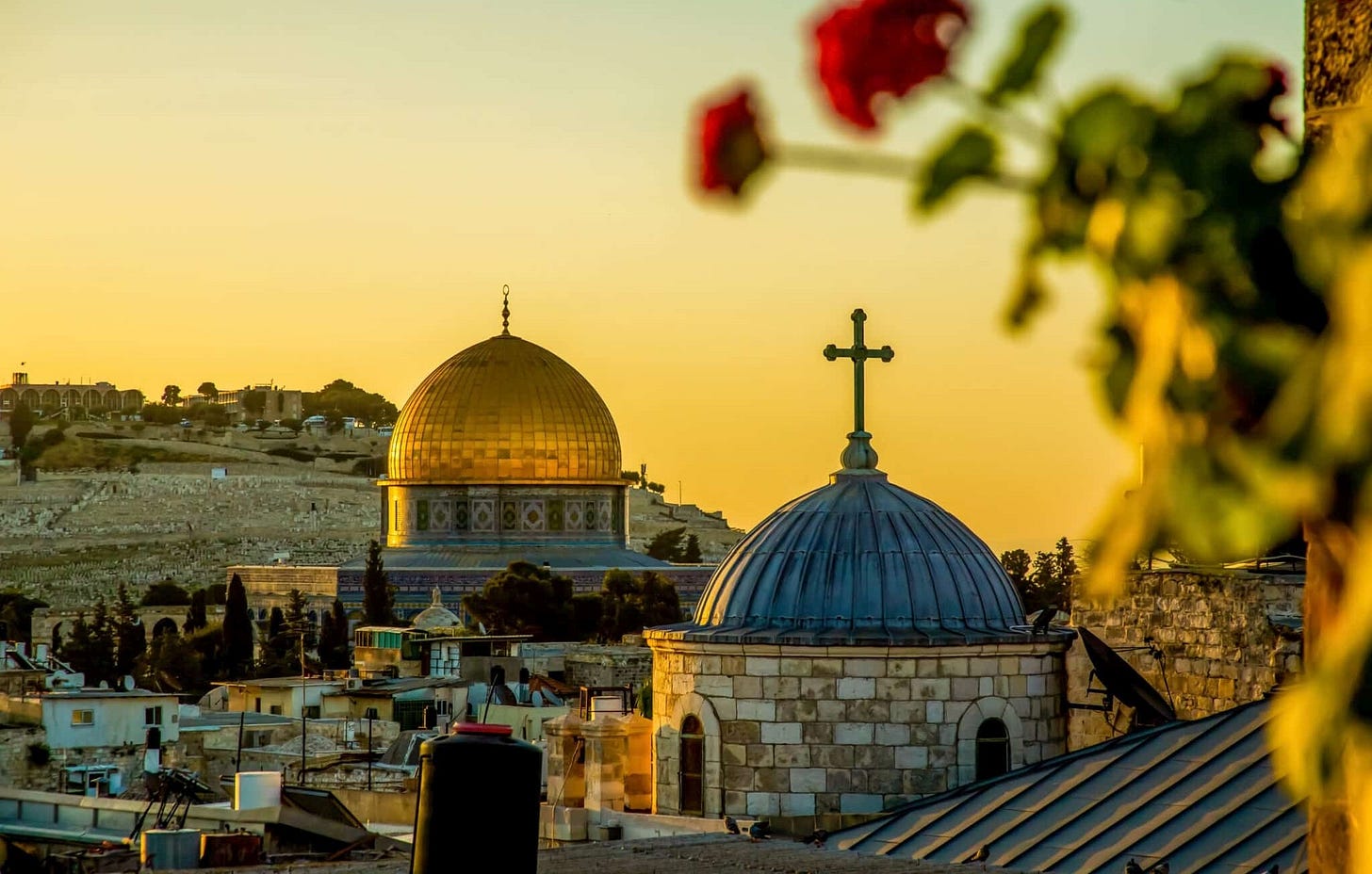Do Christians and Muslims “Worship the Same God Together”?
And why the “Perennialist School” — like Pope Francis's “all religions are paths to God” — is incompatible with Christianity
In recent days, the internet has been ablaze with commentary on the pope’s off-the-cuff remarks in Singapore, which were initially “cleaned up” by the Vatican press operation, then restored to reflect what he actually said, and which, no matter how you slice it, are not, in any possible universe, words that a Catholic believer could speak:
One of the things that has impressed me most about the young people here is your capacity for interfaith dialogue. This is very important because if you start arguing, “My religion is more important than yours...,” or “Mine is the true one, yours is not true....,” where does this lead? Somebody answer. [A young person answers, “Destruction”.] That is correct. All religions are paths to God. I will use an analogy, they are like different languages that express the divine. But God is for everyone, and therefore, we are all God’s children. “But my God is more important than yours!”. Is this true? There is only one God, and religions are like languages, paths to reach God. Some Sikh, some Muslim, some Hindu, some Christian. Understood? Yet, interfaith dialogue among young people takes courage.
The mental gymnastics displayed this time by the popesplainers — Lofton, Likoudis, et al. — have been positively olympic in scope. For those who are interested, such figures as Erick Ybarra, Fr. Peter Totleben, and Larry Chapp have been critiquing the attempts on Facebook. To me, it’s a no-brainer that the pope meant what he said in exactly the same way in which the dissident theologians of the 1990s and 2000s — often Jesuits and often disciplined by Ratzinger at the CDF — meant it when they, in their turn, used the same kind of language. It’s not as if this is the first time Francis has asserted something panreligious, indifferentist, or syncretistic. I’ll come back to this point below.
For now, I’d like to focus on a specific set of issues that will disclose the error of the pope’s entire approach.
Youthful conciliarism and later reconsideration
Many decades ago, only a few years into my first teaching job, I was appointed to sit on a committee for a thesis that touched on the question of whether the Second Vatican Council’s Declaration on the Relation of the Church with Non-Christian Religions, Nostra Aetate, was correct to say that Christians and Muslims worship the same God. The student defending the thesis argued the negative: the statement fails due to equivocation on “God,” since for the Christian He is One-in-Three essentially and necessarily, and for the Muslim He is One-and-Not-Three, with the divinity of Christ and of the Holy Spirit expressly denied. It is not possible for an orthodox Christian and an ‘orthodox’ Muslim to say the word “God” and mean the same thing thereby.
At the time, being still very much in the grip of magisteriumitis, I rose to the defense of the Council: “Your position cannot be right, because it contradicts The Council.” I attempted to gloss the teaching by saying that the word “God” has a basic content that includes all His attributes (eternal, infinite, wise, merciful, just, holy) as well as the actions that flow from them (creation, providence, salvation, enlightenment, judgment), and that this basic content is what Nostra Aetate was referring to: after all, Christians and Muslims clearly acknowledge God as the eternal, infinite, wise (etc.) Creator, Sustainer, Savior (etc.), and, since there really is such a One, therefore their acts of worship have this One as their terminus—even if, of course, they would disagree about many other theological premises. There is a content to the word “God” that is genuinely common to both religions, and that suffices to ground the conciliar statement.
Years later, with an embarrassment I am not afraid to admit, I reached the conclusion that the student had been correct, and I had been mistaken. However, the student had not fully articulated the reasoning, and this is what I had to discover.
Keep reading with a 7-day free trial
Subscribe to Tradition and Sanity to keep reading this post and get 7 days of free access to the full post archives.



